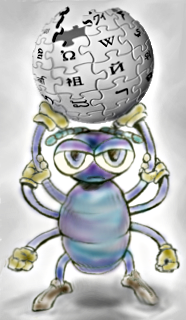Rheingold’s social-media class did an exercise that changed the way many of his students interact with Facebook.
Each student projected their profile on a screen with everything but their name or picture. Everyone had to guess whose profile was on display. Estela Marie Go, an undergraduate student in the class, says she suddenly realized that she didn’t like the way Facebook forced her to define herself with a list of interests.
—Sydell (2010) on NPR.
A number of my students have Facebook accounts. I have one too, but I think I’ve used it twice in the year that I’ve had it. Part of my problem is about how it accelerates the loss of privacy inherent to living on the net. However, I also have a very big problem with its insular nature, the fact that it is its own walled-off section of the internet. The two times I’ve used it have been when people I knew from inside the wall wanted to share something and I could not get to it from outside. I also find it difficult to give so much personal information, about my history and my habits to a single company.
So I’m always enthused to see other people coming to the same conclusions, like those in NPR’s recently broadcast story about how, “New Networks Target Discomfort With Facebook.”
